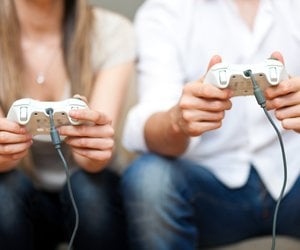Originally published in Contour, March 2017, the magazine of the American Student Dental Association. Learn more at ASDAnet.org/contour.
During a state visit in 2011, Barack Obama was greeted by Poland’s Prime Minister Donald Tusk, who then handed him a video game. “The Witcher 2” was developed in Poland, and Obama explained it as “a great example of Poland’s place in the new global economy.” The list of video games name-dropped by a head of state is, not surprisingly, short. Most media outlets didn’t report on the gesture, but its impact was tremendous in the gaming community.
Benefits, growth of eSports
Today, thousands of fans pack into an arena with bellowing commentators and post-match interviews. ESPN, TBS, and TNT have contracts to broadcast multiplayer gaming events on live television. eSports is still in its infancy, but it’s growing rapidly, and so are the prize purses. Research firm Newzoo reports the international eSport market for 2015 was $325 million and projects a $463-million market in 2016.
Sociologist Roger Caillois predicated this discussion in his 1961 book, “Man, Play, Games.” He observed that playing games is “an occasion of pure waste: waste of time, energy, ingenuity, skill and often money… [but also a] source of joy and amusement,” offering “an escape from responsibility and routine.” Caillois unknowingly understated that tradeoff.
July 2016’s Scientific American featured a piece discussing the cognitive benefits of playing video games. Researchers Bavelier and Green unwittingly alluded to the dental student skillset, writing, “individuals who regularly play video games demonstrate improved ability to focus on visual details… display heightened sensitivity to visual contrast… [and] mentally rotate objects more accurately.” Perhaps it’s a matter of time until Kaplan scraps PAT prep modules and instead recommends gaming for an hour each day.
Also under “things a dental student would care about” is a 2016 Australian study in the International Journal of Communication. Alberto Posso evaluated the correlation of social network usage, gaming and educational outcomes of Australian teenagers. Results indicated that “online gaming was found to have a positive effect on [mathematics, reading, and science] scores.”
The video game conversation is always coupled with the concerned parent or television personality over violent content. The same Scientific American piece stated that “concerns persist about whether games foster aggression or addictive play.” A 2014 meta-analysis by Greitemeyer et al. found a statistically significant association between violent gaming and aggressive social outcomes. Salon ran a piece (2014) on “The Witcher 2” that read, “players navigate [the protagonist] through morally ambiguous adventures, hacking up enemies and bedding ladies in a role-playing game for adults.” This less-than-glowing review is not completely off-base. I played through the game twice, I should know.
Dental education and gaming
Despite these reservations, I will ceaselessly argue the benefits. The escape, the thrill, the immersion. Bavelier and Green wrote optimistically of gaming as a therapeutic tool. Software is being developed to help patients with amblyopia, dyslexia, and head-trauma. Games have helped me build a library of skills, from dexterity to reading comprehension, visual aptitude, problem solving, and even social acumen. Coincidentally, that is the exact skill set we use when a patient walks into our operatory.
Caillois championed the act of “play” for the same reason I urge everyone to adventure in a virtual landscape: “Play is simultaneously liberty and invention, fantasy and discipline… It creates and sustains the spirit of inquiry.” As millennials permeate the professional workforce, the world around us will begin to reflect our generational interests. Those same interests have already infiltrated media giants (ESPN, Turner Broadcasting). Dental education is already intersecting with gaming. Virtual reality simulation systems are being installed in schools right now. The integration is already happening, and our profession stands to gain from it.
